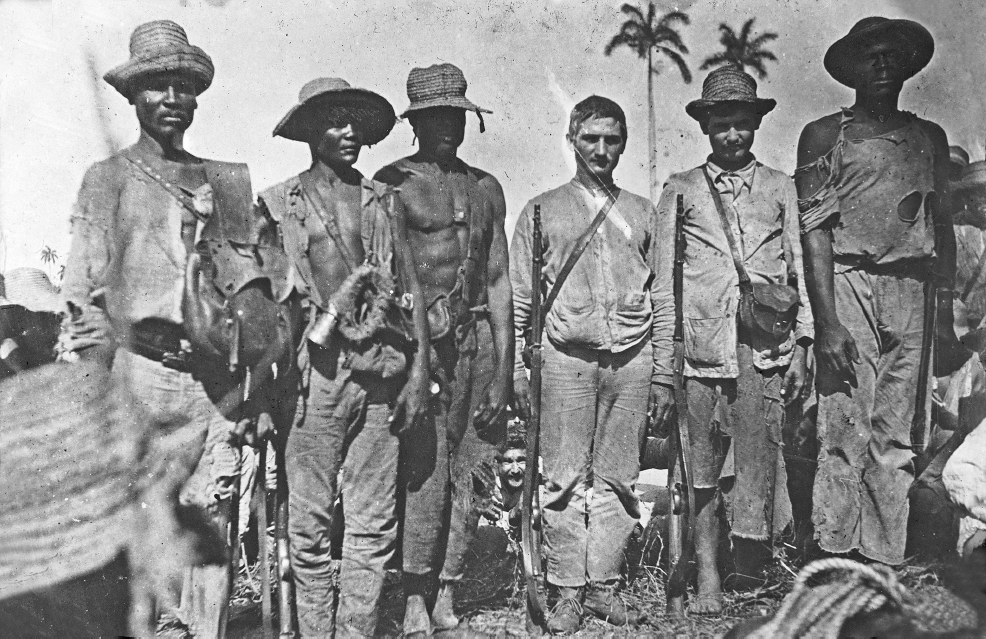Exploring American Histories: Printed Page 626
Exploring American Histories, Value Edition: Printed Page 516
Cuba Libre
The Cuban War for Independence began in 1895 around the concept of Cubanidad—pride of nation. José Martí envisioned that this war of national liberation from Spain would provide land to impoverished peasants and offer genuine racial equality for the large Afro-Cuban population that had been liberated from slavery less than a decade earlier, in 1886. Black Cubans, such as Antonio Maceo, flocked to the revolutionary cause and constituted a significant portion of the senior ranks in the rebel army.
The insurgents fought a brilliant guerrilla war. Facing some 200,000 Spanish troops, 50,000 rebels ground them down in a war of attrition. The Cuban insurgents burned crops, laid siege to land, and cut railroad lines to keep the Spaniards from using these vital resources. Within eighteen months, the rebellion had spread across the island and garnered the support of all segments of the Cuban population. The Spanish government’s brutal attempts to crack down on the rebels only stiffened their resistance. By the end of 1897, the Spanish government recognized that the war was going poorly and offered the rebels a series of reforms that would give the island home rule within the empire but not independence. Sensing victory, the insurgents held out for total separation to realize their vision of Cuba Libre, an independent Cuba with greater social and racial equality.
The revolutionaries had every reason to feel confident as they wore down Spanish troops. First, they had help from the climate. One-quarter of Spanish soldiers had contracted yellow fever, malaria, and other tropical illnesses and remained confined to hospitals. The chief military commander of the rebel forces, General Maximo Gómez, bragged that his three best generals were “Junio, Julio, and Agosto,” referring to the months of June, July, and August, which ushered in the rainy season and increased the spread of disease. Second, mounting a successful counterinsurgency would have required far more troops than Spain could spare. Its forces were spread too thin around the globe to keep the empire intact. In addition to Cuba, Spain stationed some 200,000 troops in Puerto Rico, the Philippines, and Africa. Finally, antiwar sentiment was mounting in Spain, and on January 12, 1898, Spanish troops mutinied in Havana. Speaking for many, a former president of Spain asserted: “Spain is exhausted. She must withdraw her troops and recognize Cuban independence before it is too late.” U.S. Secretary of State John Sherman concurred: “Spain will lose Cuba. . . . She cannot continue the struggle.”
